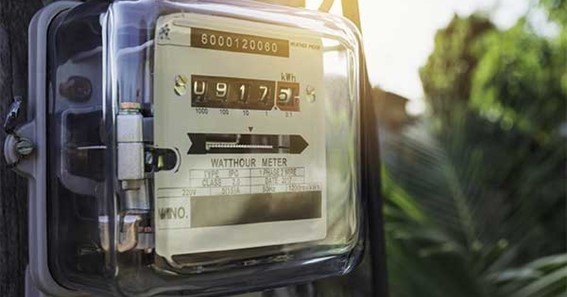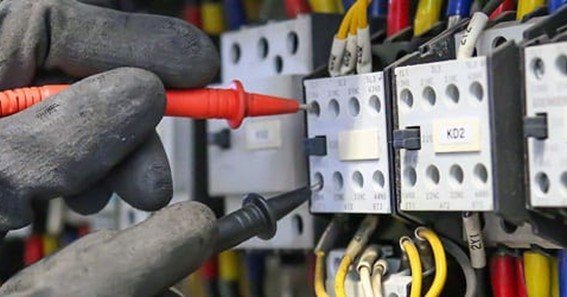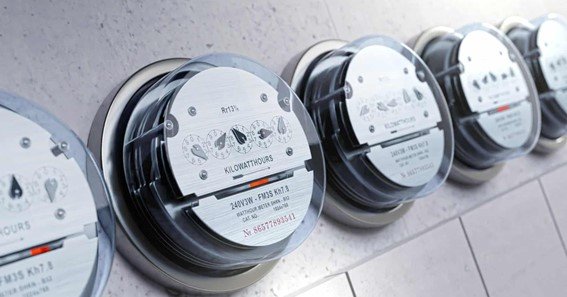What is a kilowatt hour? A kilowatt-hour (kWh) is a unit of energy representing the amount of energy consumed when using one kilowatt of power for one hour. If you work in the electrical industry, you must know your kWh usage. This measure helps energy users track and understand their use. Kilowatt-hours are useful for billing and controlling energy since they represent how much energy one kilowatt uses in an hour. Reading power bills, tracking energy use, and making smart energy choices requires knowledge of kilowatt-hours. In this article we discuss about what is a kilowatt hour and more about it.
What Is A Kilowatt Hour?
A kilowatt-hour (kWh) is a unit of energy representing the amount of energy consumed when using one kilowatt of power for one hour. We measure power utilization in kWh. A device with that power level uses one kilowatt-hour in one hour. This measurement, 3.6 megajoules (MJ) or 3,600,000 joules (J), is used for measuring households and businesses.
Electric utilities bill energy in kilowatt-hours. You pay for electricity based on how many kilowatt-hours you utilize during the billing period. This payment method helps users track and manage their energy use. Using kilowatt-hours at home is optional, but energy-intensive businesses and industries need them, too. Learn about kilowatt-hours to track energy use, lower costs, and improve business efficiency.
Also Read : What Is Neapolitan Pizza? Important Information Regarding Naples Pizza
Important Information Regarding The Kilowatt Hour

You need to know what is a kilowatt hour to track energy expenditures and use. This unit measures energy use and is crucial for billing and economy. Kilowatt-hours matter daily. You should know about them.
Also Read : What Is Maize? Things You Ought To Understand About Corn
Meaning And Foundations
3.6 megajoules equal a kilowatt-hour (kWh). Using one kilowatt for an hour measures energy use. This gadget is crucial for monitoring and managing electricity use. A 100-watt light bulb uses 1 kWh of energy to run for 10 hours (100 watts × 10 hours = 1,000 watt-hours, or 1 kWh). Kilowatt-hours let people and utilities track and control energy use.
Energy Bills’ Significance
Energy bills are usually in kilowatt-hours. Electric providers track total energy use each billing period using kWh. A power bill indicates the number of kWh used times the price per kWh. This method helps users calculate energy use and cost. When using 500 kWh monthly at $0.12/kWh, your monthly payment will be $60 (500 kWh ÷ $0.12/kWh).
Switching Units
One kilowatt-hour is 3.6 megajoules (MJ) or 3,600,000 J. This conversion tool helps you compare energy use between numbers and scenarios. Other countries use kilowatt-hours, while metric countries use megajoules. Knowing these conversions helps compare corporate energy use.
Home Energy Usage
Many households measure their energy use in kilowatt-hours (kWh). Freezers, AC units, and heaters use varied amounts of kWh. A refrigerator uses 200 kWh a year, but an air conditioner uses 1,200. Knowing how many kWh different products use, homeowners may reduce their energy use and costs.
Industrial And Business Use

Kilowatt-hours are crucial for energy management in factories and companies. Businesses need lots of energy to operate, manufacture, and heat. By monitoring kWh usage, businesses may reduce energy expenses and improve efficiency. Industrial plants can save money and perform more efficiently by optimizing energy use. The plant may require several hundred thousand kWh per month.
Renewable Energy Creation
Kilowatt-hours quantify renewable energy sources like solar panels and wind turbines. It would help if you tracked how many kWh these systems produce to evaluate their performance and ROI. For example, a 500-kWh solar panel system can offset your grid energy, reducing your electricity bill and promoting energy sustainability.
Conserving Energy
If you read what is a kilowatt hour, you must know calculate kilowatt-hours to save energy and use it more efficiently. Customers can detect energy-hogging appliances and reduce their usage by monitoring their kWh usage. LED bulbs utilize 75% less energy than incandescent bulbs; thus, switching to them can save a lot. Energy conservation reduces power costs and environmental impact.
Environmental Impacts
High kilowatt-hour energy use affects the world. Using a lot of kWh, especially from fossil fuels like coal or natural gas, releases more greenhouse emissions. Energy efficiency and renewable energy can reduce these global impacts. Renewable energy sources like solar and wind power reduce carbon emissions and fossil fuel use.
Future Trends
If you know what is a kilowatt hour, you should know technology is enabling new kilowatt-hour measurement and control methods. Smart meters provide real-time energy usage data, helping users monitor and adjust their usage. Smart home and energy management system innovations help families and businesses save money and use energy more efficiently. Knowing these energy trends helps people and companies make smarter energy choices and achieve sustainability goals.
Conclusion
Keeping track of energy use and expenditures requires understanding kilowatt-hours. This unit of energy helps people and companies track and measure their energy use to make wise electrical choices. Knowing how high kWh use impacts the environment and how to convert kWh to other units, people and businesses may use less energy and help the future be sustainable. New kilowatt-hour tracking and management methods will help us utilize energy more efficiently and ethically as technology improves. Knowing kilowatt-hours and modern technologies can help you make better energy decisions and live more sustainably. In above we discuss about what is a kilowatt hour and explore more about it.
FAQ
What Does Kwh Mean?
Measurement of one kilowatt-hour requires 3.6 MJ. Using one kilowatt for an hour measures energy use.
How Do You Calculate Kwh?
Increasing kilowatts by hours yields a kilowatt-hour. Three hours on a 2 kW gadget utilizes six kWh.
Why Bother Learning About Kwh?
Kilowatt-hours measure and bill electricity use. This helps users track energy use and save money.
How Can I Save Kwh?
Installing energy-efficient appliances, turning off electronics, and considering renewable energy options like solar panels can save kilowatt-hours.
What’s The Environmental Impact Of Utilizing Lots Of Kwh?
High kilowatt-hour use, especially from fossil fuels, increases greenhouse gas emissions. Reducing kWh use helps the environment and sustainability.
Sources:
https://en.wikipedia.org/wiki/Kilowatt-hour
https://electricityplans.com/kwh-kilowatt-hour-can-power
Explore some exciting articles what-is-neapolitan-pizza










